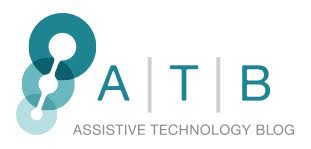Craig H. Neilsen Foundation Donates Nearly $10M in Crisis Funding to Spinal Cord Injury Communities and Critical Research
The Craig H. Neilsen Foundation, the largest private funder of spinal cord injury research, education, clinical training and programmatic support in the U.S. and Canada, announced on July 23rd that it has allocated close to $10 million in emergency grant funding to support the spinal cord injury (SCI) community and critical research amid the COVID-19 pandemic.
“The Neilsen Foundation is dedicated to a future where people with SCI can live full and productive lives as active participants in our communities,” said Kym Eisner, Executive Director of the Foundation. “That requires providing immediate, emergency funding to meet their needs during the pandemic, while maintaining our long-term investments in the future.”
This crisis has presented many challenges for the SCI community. People with SCI are disproportionately affected by COVID-19. They are at a high risk of catching the virus, are more likely to experience a critical version of the virus, and many cannot fully socially distance as they rely on outside caregivers to support them in their daily life. Additionally, important SCI research projects have been halted or delayed and will incur additional costs required for the measures needed to return to work.
“People with SCI are facing increased risks in addition to a shortage of home- and community-based services, personal care attendants, and health care options,” said James Weisman, President and CEO of United Spinal. “The safety and well-being of this community is our highest priority and with these grants we’re proud that we can help alleviate their challenges.”
To meet these complicated challenges, the Foundation created a new crisis funding structure — one that other philanthropic foundations can use as a model — that couples immediate needs with long-term support. The immediate funding provided is based on historically good stewardship of Foundation funds coupled with the willingness to trust their grantees, meaning organizations can access the funds without the usual reporting requirements so they can focus on delivering care quickly.
The Foundation is distributing the funding to current and past grantees by invitation only through:
- Emergency grants ($3.5 million) to grassroots, non-profit organizations across the U.S. and Canada, including $1 million in funding to United Spinal to get essential services and supplies to people (e.g. grocery delivery PPE telehealth). Some stories of these grantees are below.
- Research grants ($6.1 million) for projects that have been delayed, put on hold or otherwise impacted. This funding helps cover the cost of delays and the measures that will need to be taken as people return to work (e.g. sanitation processes, testing and PPE).
To learn more about the Neilsen Foundation and its work, please visit https://chnfoundation.org/.
Stories of Emergency Grantees
- Northeast OH: When the pandemic struck, wheelchair basketball games and power soccer games at Adaptive Sports Program of Ohio came to a halt but the teamwork didn’t. The coaches are delivering groceries and essential supplies to the athletes, which is both keeping the coaches employed and providing a critical service. These deliveries saved one athlete and his family from taking potentially dangerous trips to the grocery store and allowed him more time to focus on his physical therapy practice so he can protect himself.
- Houston, TX: Without adequate protective equipment, local residents with SCI are putting themselves at risk every time their caregivers come to their homes and for many, caregiver support is essential to daily life. United Spinal Houston is helping them stay safe and stay at home by delivering kits with essential health products, including KN95 masks, gloves and hand sanitizer.
- Kansas City, MO: Physical therapy and occupational therapy is critical and people need to be able to continue it at home, but many insurance providers, including Medicaid and Medicare, don’t cover telehealth for these services. A clinic in Kansas City has helped cover the cost. Ability KC launched telehealth services in response to the pandemic and the grants from Neilsen help bridge the cost gap so that Ability can keep providing therapy to their clients, even if it has to be done over video and they have to swap soup cans and brooms for actual gym equipment.
About the Craig H. Neilsen Foundation
The Craig H. Neilsen Foundation is the largest private funder of spinal cord injury research, rehabilitation, clinical training, and programmatic support in the United States and Canada, and draws ongoing inspiration from its founder. The Foundation partners with scientific, charitable and educational organizations conducting spinal cord injury research, training in spinal cord medicine, and supports grassroots organizations providing services to assist individuals affected by spinal cord injury. The Foundation is dedicated to a future where individuals with spinal cord injuries live full and productive lives as active participants in their communities.
###


Leave a comment